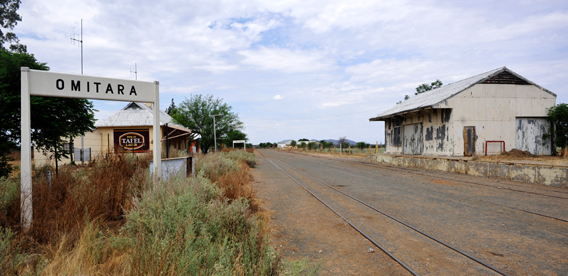|
Mincome
Mincome, the "Manitoba Basic Annual Income Experiment", was a Canadian guaranteed annual income (GAI) social experiment conducted in Manitoba in the 1970s. The project was funded jointly by the Manitoba provincial government and the Canadian federal government under Prime Minister Pierre Trudeau. It was launched with a news release on February 22, 1974, under the New Democratic Party of Manitoba government of Edward Schreyer, and was closed down in 1979 under the Progressive Conservative of Manitoba government of Sterling Lyon and the federal Progressive Conservative Party of Joe Clark. The purpose of the experiment was to assess the social impact of a guaranteed, unconditional annual income, UBI, including whether a program of this nature would create disincentives to work for the recipients and, if so, to what extent. Program structure The experiment consisted of a randomized controlled trial in the City of Winnipeg and in rural Manitoba (the rural dispersed site). A so-calle ... [...More Info...] [...Related Items...] OR: [Wikipedia] [Google] [Baidu] |
Basic Income In Canada
Universal basic income in Canada refers to the debate and trials with basic income, negative income and related welfare systems in Canada. The debate goes back to the 1930s when the social credit movement had ideas around those lines. Two major basic income experiments have been conducted in Canada. Firstly the Mincome experiment in Manitoba 1974–1979, and secondly the Ontario Basic Income Pilot Project in 2017. The latter was intended to last for three years but only lasted a few months due to its subsequent cancellation by the then newly-elected Conservative government. History William Aberhart, Premier of Alberta, was inspired by Major C. H. Douglas Social Credit theory and tried to implement a basic income for Albertans during the 1930s. However, he was thwarted in his attempts by the Federal Government of the time. In 1970 the Canadian Department of National Health and Welfare issued a white paper which both emphasized the ability of NIT to decrease poverty but at the p ... [...More Info...] [...Related Items...] OR: [Wikipedia] [Google] [Baidu] |
Universal Basic Income In Canada
Universal basic income in Canada refers to the debate and trials with basic income, negative income and related welfare systems in Canada. The debate goes back to the 1930s when the social credit movement had ideas around those lines. Two major basic income experiments have been conducted in Canada. Firstly the Mincome experiment in Manitoba 1974–1979, and secondly the Ontario Basic Income Pilot Project in 2017. The latter was intended to last for three years but only lasted a few months due to its subsequent cancellation by the then newly-elected Conservative government. History William Aberhart, Premier of Alberta, was inspired by Major C. H. Douglas Social Credit theory and tried to implement a basic income for Albertans during the 1930s. However, he was thwarted in his attempts by the Federal Government of the time. In 1970 the Canadian Department of National Health and Welfare issued a white paper which both emphasized the ability of NIT to decrease poverty but at the p ... [...More Info...] [...Related Items...] OR: [Wikipedia] [Google] [Baidu] |
Guaranteed Minimum Income
Guaranteed minimum income (GMI), also called minimum income (or mincome for short), is a social-welfare system that guarantees all citizens or families an income sufficient to live on, provided that certain eligibility conditions are met, typically: citizenship; a means test; and either availability to participate in the labor market, or willingness to perform community services. The primary goal of a guaranteed minimum income is reduction of poverty. In circumstances when citizenship is the sole qualification, the program becomes a universal basic income system. Elements A system of guaranteed minimum income can consist of several elements, most notably: * Calculation of the social minimum, usually below the minimum wage * Social safety net that helps those without sufficient financial means survive at the social minimum through payments or a loan, generally conditional on availability for work, performance of community services, some kind of social contract, or commitment t ... [...More Info...] [...Related Items...] OR: [Wikipedia] [Google] [Baidu] |
Basic Income
Universal basic income (UBI) is a social welfare proposal in which all citizens of a given population regularly receive an unconditional transfer payment, that is, without a means test or need to work. It would be received independently of any other income. If the level is sufficient to meet a person's basic needs (i.e., at or above the poverty line), it is sometimes called a full basic income; if it is less than that amount, it may be called a partial basic income. No country has yet introduced either, although there have been numerous pilot projects and the idea is discussed in many countries. Some have labelled UBI as utopian due to its historical origin. There are several welfare arrangements which can be considered similar to basic income, although they are not unconditional. Many countries have a system of child benefit, which is essentially a basic income for guardians of children. Pension may be a basic income for retired persons. There are also quasi-basic income p ... [...More Info...] [...Related Items...] OR: [Wikipedia] [Google] [Baidu] |
Basic Income Around The World
Universal basic income (UBI) is discussed in many countries. This article summarizes the national and regional debates, where it takes place, and is a complement to the main article on the subject: universal basic income. Africa Namibia From January 2008 to December 2009, a pilot project with basic income grant was implemented in the Namibian villages of Otjievero and Omitara. The project was organized by the Namibian Basic Income Grant Coalition. It was mainly funded by a German Protestant church, by individual contributions of German and Namibian citizens and by contributions of the German Ministry for Cooperation. The amount paid out per head was N$100 (8% of the average income, around US$12). After the launch, the project was found to have significantly reduced child malnutrition and increased school attendance. It was also found to have increased the community's income significantly above the actual amount from the grants as it allowed citizens to partake in more product ... [...More Info...] [...Related Items...] OR: [Wikipedia] [Google] [Baidu] |
Ontario Basic Income Pilot Project
The Ontario Basic Income Pilot Project was a pilot project to provide basic income to 4,000 people in Ontario, Canada. The project followed recommendations made by Hugh Segal in consultation with the population, and would test whether "Basic Income ouldreduce poverty more effectively, encourage work, reduce stigmatization, and produce better health outcomes and better life chances for recipients". It was then implemented in 2018 by the Ontario Liberal Party. However, the project was terminated early by a newly elected Progressive Conservative government, and the final payments were made to participants in March 2019. Description The pilot project aimed to give a fixed income for three years to people with low or no incomes. The communities served by the pilot project included Hamilton, Brantford, Thunder Bay and Lindsay. Participants of the project were randomly selected among residents of the regions aged 18–64. The financial threshold for inclusion was $34,000 per year for s ... [...More Info...] [...Related Items...] OR: [Wikipedia] [Google] [Baidu] |
Dauphin, Manitoba
Dauphin () is a city in Manitoba, Canada, with a population of 8,457 as of the 2016 Canadian Census, with an additional 2,388 living in the surrounding Rural Municipality of Dauphin (RM), for a total of 10,845 in the RM and city combined. The city takes its name from Lake Dauphin and Fort Dauphin (first built 1741), which were named by explorer Pierre Gaultier de La Vérendrye in honour of the Dauphin of France, the heir to the French throne. Dauphin is Manitoba's ninth largest community and serves as a hub to the province's Parkland Region. The current mayor of Dauphin is Christian Laughland. Conservative Dan Mazier has been the member of Parliament for the Dauphin—Swan River—Marquette riding since November 2010. Progressive Conservative Brad Michaleski is the current member of the Legislative Assembly. Dauphin plays host to several summer festivals, including Dauphin's Countryfest and Canada's National Ukrainian Festival. Dauphin is served by Provincial Trunk Highways ... [...More Info...] [...Related Items...] OR: [Wikipedia] [Google] [Baidu] |
Omitara
Omitara is a settlement in the Steinhausen electoral constituency in the Omaheke Region of Namibia. Together with the adjacent village of Otjivero — the two places are often referred to as one — it had a population of approximately 1,200 as of October 2008. Otjivero and Omitara Railway Station are two contiguous TransNamib railway stops en route from Windhoek to Gobabis. Economy and Infrastructure Basic Income Grant project In 2008 and 2009, Omitara and Otjivero were the site of a basic income grant test project. Every person under the retirement age of 60 was given 100 Namibian dollars (Namibian pensioners get an independent allowance of 550N$ per month). The follow-up study, published in October 2008, reported that poverty-related crime, malnutrition rates among children and school drop outs had decreased since the inception of the project. The coalition advocating for a BIG in Namibia was led by labour and church organisations, hoping for a nationwide implementation of th ... [...More Info...] [...Related Items...] OR: [Wikipedia] [Google] [Baidu] |
1974 Establishments In Manitoba
Major events in 1974 include the aftermath of the 1973 oil crisis and the resignation of President of the United States, United States President Richard Nixon following the Watergate scandal. In the Middle East, the aftermath of the 1973 Yom Kippur War determined politics; following List of Prime Ministers of Israel, Israeli Prime Minister Golda Meir's resignation in response to high Israeli casualties, she was succeeded by Yitzhak Rabin. In Europe, the Turkish invasion of Cyprus, invasion and occupation of northern Cyprus by Turkey, Turkish troops initiated the Cyprus dispute, the Carnation Revolution took place in Portugal, and Chancellor of Germany, Chancellor of West Germany Willy Brandt resigned following an Guillaume affair, espionage scandal surrounding his secretary Günter Guillaume. In sports, the year was primarily dominated by the 1974 FIFA World Cup, FIFA World Cup in West Germany, in which the Germany national football team, German national team won the championshi ... [...More Info...] [...Related Items...] OR: [Wikipedia] [Google] [Baidu] |
Ideas (radio Show)
''Ideas'' is a long-running scholarly radio documentary series on CBC Radio One, first broadcast in 1965. it has been hosted by Nahlah Ayed and is broadcast between 8:05 and 9:00 p.m. weekday evenings; one episode each week is repeated on Monday afternoons under the title ''Ideas in the Afternoon''. The CBC Ideas podcast series initiative began in 2005. Background Co-created by Phyllis Webb and William A. Young,Ideas . the premiere broadcast of the hour-long daily program, ''The Best Ideas You'll Hear Tonight'', aired on CBC Radio on October 25, 1965, and featured a "series on Darwin's theory of evolution by Dr. June Clare, a Brit ... [...More Info...] [...Related Items...] OR: [Wikipedia] [Google] [Baidu] |
Wage Slavery
Wage slavery or slave wages refers to a person's dependence on wages (or a salary) for their livelihood, especially when wages are low, treatment and conditions are poor, and there are few chances of upward mobility. The term is often used by critics of work to criticize the exploitation of labor and social stratification, with the former seen primarily as unequal bargaining power between labor and capital, particularly when workers are paid comparatively low wages, such as in sweatshops, and the latter is described as a lack of workers' self-management, fulfilling job choices and leisure in an economy.. The criticism of social stratification covers a wider range of employment choices bound by the pressures of a hierarchical society to perform otherwise unfulfilling work that deprives humans of their "species character" not only under threat of extreme poverty and starvation, but also of social stigma and status diminution... Historically, many socialist organisations and ac ... [...More Info...] [...Related Items...] OR: [Wikipedia] [Google] [Baidu] |
Social Liberalism
Social liberalism (german: Sozialliberalismus, es, socioliberalismo, nl, Sociaalliberalisme), also known as new liberalism in the United Kingdom, modern liberalism, or simply liberalism in the contemporary United States, left-liberalism (german: Linksliberalismus) in Germany, and progressive liberalism ( es, Liberalismo progresista) in Spanish-speaking countries, is a political philosophy and variety of liberalism that endorses a social market economy and the expansion of civil and political rights. Social liberalism views the common good as harmonious with the individual's freedom. Social liberals overlap with social democrats in accepting economic intervention more than other liberals, although its importance is considered auxiliary compared to social democrats. Ideologies that emphasize only the economic policy of social liberalism include welfare liberalism, New Deal liberalism in the United States, and Keynesian liberalism. Cultural liberalism is an ideology that hig ... [...More Info...] [...Related Items...] OR: [Wikipedia] [Google] [Baidu] |








